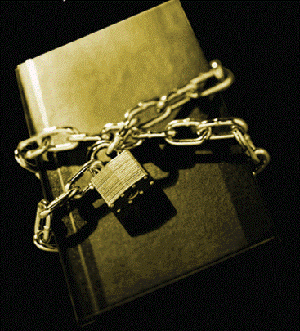I would say that online education is the way of the future, but that would be a cliche. It would also be false. Online education is the way of the present. Digital media is pervading every aspect of our educational system. Don’t believe me? As all the parents of my local school district who had to buy ear buds for their kids in addition to the usual pencils, washable markers, and glue sticks.
You can get a quality education online, and as we move forward, the stigma attached to that education will diminish. Last week, I finished the coursework for a Master’s degree in literary arts. I studied literary criticism and theory online through Fort Hays State University’s graduate school for the last two and a half years, taking two classes at a time. I still have my literature comprehensive exam to take, but having completed the coursework with a 4.0, I felt it would be a good time to pass on some advice.
1. Don’t pursue an online degree because you lack the time for graduate school. Your schedule can be hectic. It can be erratic. It can’t be full. Even though you are not spending time in an actual classroom, you will spend just as much time, if not more, on your classes. On average, I think I spent around 28 hours a week on my degree. That’s four hours a day, seven days a week. Days when I couldn’t get the work in meant making it up on the weekends. Some weekends, I would seclude myself in the basement and work from morning through evening writing criticism, discussion posts, and reading research.
2. Live by your calendar. You aren’t an undergrad any more. Your instructors will expect a certain level of professionalism in your work and your approach. The fact that you aren’t face-to-face with your instructors means that there isn’t going to be anyone to remind you that you have a 25 page paper due in two weeks. You are going to need to be on top of things, or risk running behind. I would guess that my literature classes had a fifty percent drop rate based on the discussions throughout the semester. Most of those people were swallowed by their own procrastination monsters.
3. Do not procrastinate. Notice how all of these tips are about time? There are 24 hours per day. You are going to need to sleep between six and eight of them. Most people who are in an online program work full-time jobs. Which means you are probably out of commission for at least 14 hours of the day. Remember how I said I spent 28 hours a week working on the degree? That’s another four hours. You can not afford to procrastinate, particularly if you have a family or other commitments that are taking up your time. Liberal arts graduate programs are reading and writing intensive. You will be reading a lot. I usually made time for around 100 pages a day. It’s not always easy reading.
4. Trust yourself. You are going to have to build some confidence. When you are face-to-face with a class or an instructor, you get a lot of immediate and non-verbal feedback. You aren’t going to get it in the online format. You may put something out there and not hear a thing about it for days. You need to have faith that you are producing quality work and get on the next assignment right away.
If you can manage those four things, you will go a long ways towards surviving, and thriving, in an online program. I don’t think it is for everyone. If you need a lot of external motivation, it’s going to be an uphill struggle. Part of what helped me was the knowledge that I was sacrificing time as a parent and as a writer in order to do this. If I was going to put my career on hold and give up my already scarce time with my child, I was going to be the best damn literary critic in the program.
I had a good experience. I think the program has made me a better writer and has opened a world of academic research possibilities for me. It turns out, I am damn good at analyzing literature. I hope to do more of it in the future. Perhaps, I will even go on to a Ph.D. in the future. For now, however, expect more blog post, more writing, and hopefully more publishing.

